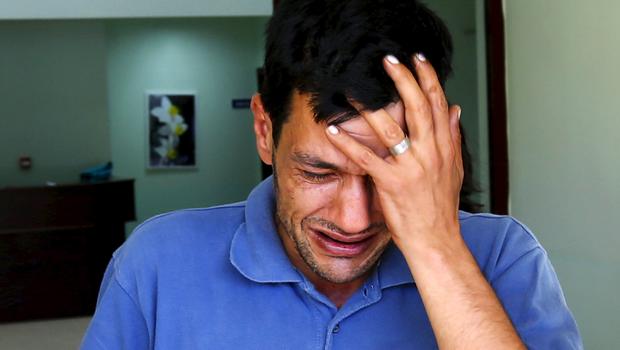 We live in an amazing age where people anywhere in the world can get up close and personal perspectives on tragedy happening in other parts of the world.
The effects of the war in Syria, the actions of groups like Boko Haram, labor and sex slavery, and many, many others show up in our twitter and facebook feeds.
We live in an amazing age where people anywhere in the world can get up close and personal perspectives on tragedy happening in other parts of the world.
The effects of the war in Syria, the actions of groups like Boko Haram, labor and sex slavery, and many, many others show up in our twitter and facebook feeds.
So how should a person who wants their faith to inform and affect their daily life respond to the ability to learn about the heart breaking realities in our world?
Let's start with what not to do. A to-don't list, if you will.
First, don't respond by ignoring them. These stories are upsetting. They hurt to learn about. We must follow the example of our creator, who, even when we hurt him, refused to ignore us. We are part of this world and when we refuse to allow anything to interrupt our starbucks-work-gym routine, we're going to miss out on a large chunk of our makeup - with is an individual called to be in community with other humans who are also made in God's image.
Second, don't respond with guilt. You have a computer or smartphone that you can use to surf the internet. Endless entertainment and distraction is available for your leisure time. That doesn't make you a terrible person for relaxing or enjoying life while others are in hellish circumstances.
Lastly, don't respond with pity. I know this may seem strange, but pity is shaking your head, saying 'that's terrible' and wishing you could do something about it - but knowing you can't and giving up. Pity helps no one.
So what is the right way to respond?
Respond with compassion.
Compassion seeks to care about the pain others are experiencing and asks 'what can I do to help?' Here's three things you can do in order to have a compassionate response.
1.Learn the stories.
2.Weep with those who weep.
3.Act.
Discovering the humanity in tragedy helps us to have compassion. Hearing that refugees are fleeing is a news story. Seeing the body of a toddler washed ashore and hearing his father talk about watching him perish is a human story. I have a three year old son. I wept when I saw that picture and read the story. I hate crying. I'd rather ignore or gloss over these painful stories, but I'm not called to avoid caring about others in this life. The story of the good Samaritan says I'm supposed to keep my eyes open for people who are beat up and laying on the side of the road so I can offer help. Helping starts with knowing and caring. Jesus wept when he arrived at the tomb of Lazarus - and Jesus knew he was going to resurrection the guy. Luke 7:12 and Matthew 14:14 both talk about Jesus being moved with compassion into action. You probably can't walk away from your current life and invest yourself into personally resolving one of these issues. Even if you could, you can't do it alone and there are many different problems. So what are the practical things you and I can start doing today which can contribute to a better future?
1.Pray unceasingly
Prayer is a limitless resource available to you. God is very clear in the scriptures that he wants us to ask him for his help and involvement. After learning about a tragic situation, you can spend as much or as little time as you like asking our loving Father to bring life and healing into situations of despair and death.
2.Donate generously
Find worthy organizations that can and are helping. World Vision is a great one, Salvation Army does wonderful things. Do your research and sacrifice some of what God has given you to help others.
3.Invite others to join you.
Most people would be happy to help others, but they need some encouragement and direction. Guilt or information overload may have them frozen in place. Ask some friends to join you in praying for Syria this week. Tell facebook how you’re donating $20 a month to help the refugee crisis and ask everyone to join you.
You can’t solve any crisis on your own, but the thing is: you aren’t supposed to. This whole ‘Body of Christ’ thing that God has given us is about each of us contributing and all of us together as a whole making huge differences. It’s why Jesus said in John 14:12 that his followers would do even greater things than him. If the 1-2 billion people who follow the teachings of Jesus each do something, together we’ll be an unstoppable force.
So don’t try to boil the ocean. And don’t get discouraged that you can only do a little. Do it, and invite others to join you, because that’s the mission of the church.







